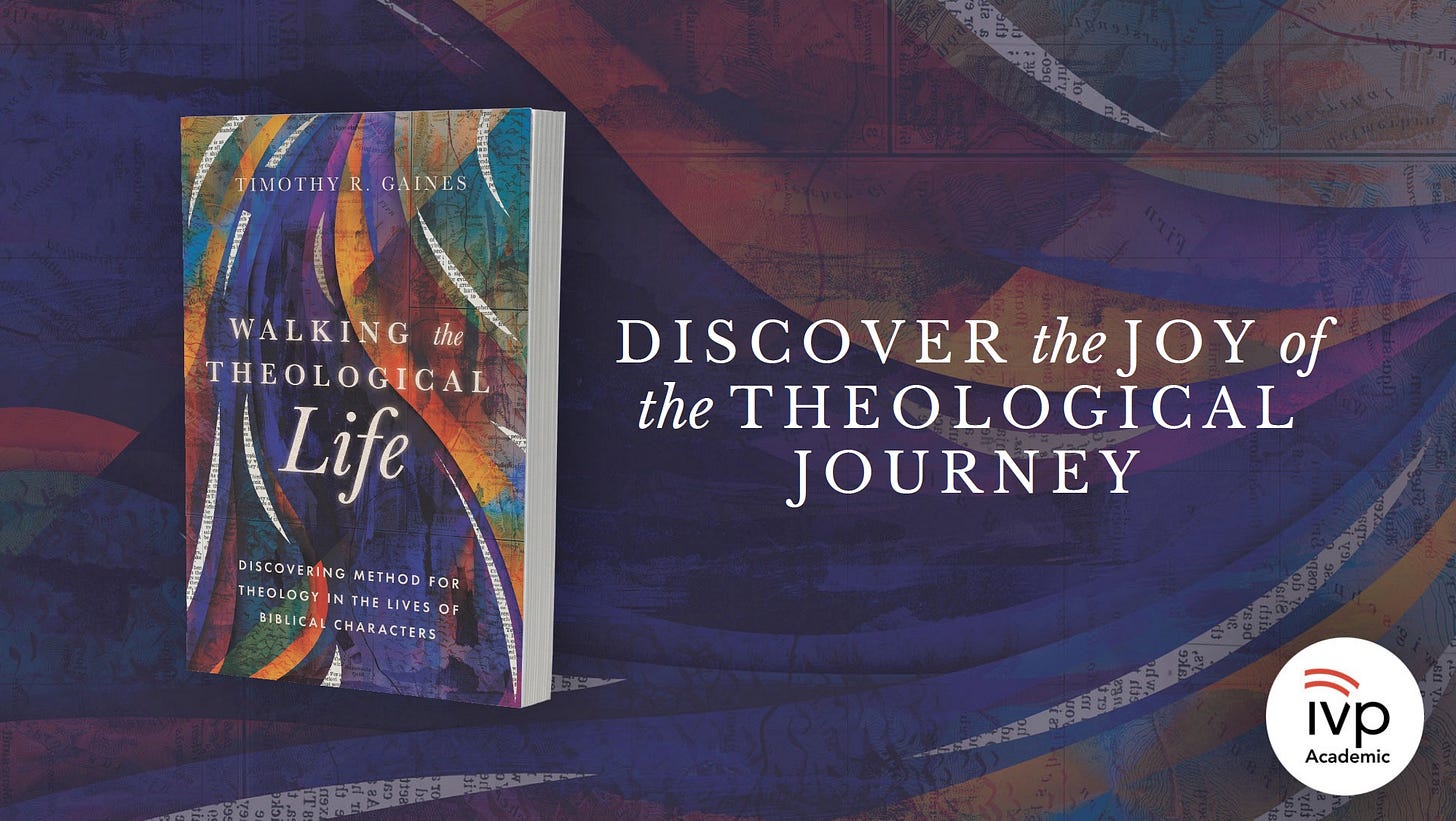Walking the Theological Life
A Book Review
God is a storyteller; at least that is how God has revealed Godself to humanity. We have a multitude of stories, poems, songs, and correspondence that reveals God progressively throughout history. The stories are epics of exodus and wandering, but also of simple everyday interactions between the people who walk in relationship with God. Theology is a retelling of those stories using language and connecting the stories to new stories in fresh places. While it may seem distant or philosophical, when done well, theology tells a story that welcomes us in to become part of the greater story of creation. Even better, theology can describe and invite into living into new creation.
Storytelling is how Dr. Timothy Gaines introduces a way to journey with theology in his new book, Walking the Theological Life. The book is organized as twelve stories of characters we encounter in the Hebrew and Christian scriptures, plus an introductory invitation to a theological journey. A friend and I were discussing our advanced reader copies and how many of the theological concepts may be aimed at a more advanced audience, but I believe that the novice has much to gain from this volume. If for no other reason than the voices Gaines invites us to hear in the depths of story may spark a curious search for more information. Names like Augustine and Barth may seem intimidating, but when paired with familiar characters, they become more accessible.
The stories are beautiful invitations to enter into the story Gaines points us toward. From the tentative and frightened Jeremiah who learns that he is truly known by God, thus giving him confidence of voice; to Nicodemus coming to Jesus hiding in the darkness, the stories introduce theological ideas and invite us to enter those stories. Gaines artfully weaves story with theological topics such that there is a beautiful music of relational knowledge. From the start, theology is much more than a science, and art, or even a spiritual endeavor. Instead, theology is being known so that we can know. “We could say it another way: before theologians set out to know God, they are known by God” As Jeremiah needed to know he was known before he could speak, we find we are known so that we can know God and experience the relational invitation God is whispering in our ears.
Like Jacob, whose name changes when he becomes known as the one who wrestled with God, we also wrestle. “Theologians do not wrestle for the love of wrestling; we wrestle for the love of God.” Such deep and encouraging words. We wrestle for love, not just to wrestle. The picture I get is that of a friend who describes the story of wrestling with his son when he was young. His son had a friend who observed them wrestling and then jumped in to join. They wrestled because they were known and they knew. My friend’s son pointed his friend to the relationship with his father which allowed a trust in wrestling.
Ultimately, that is how theologians might approach their work; by wrestling with ideas, ourselves, and one another. If we think of theology as story, then maybe, just maybe, we can show that all can be theologians wrestling for the love of God. When we become storytellers of the stories of God, we invite others to be known and thus to know. As we wrestle, we come to know love and hope.
I cannot recommend this book enough. As I read it, I found myself finding more optimistic hope for the Church. Because in this time of upheaval and fear, there are those who are teaching and wrestling to be known and to know, like Dr. Gaines. The book works well as a reader, but it shines as a tool to wrestle with others with a prayer and questions at the conclusion of each chapter that invite more stories to be told.
Walking the Theological Life will be available on June 11, 2024 but you can preorder before then. Go ahead and order it so you can get it on launch day. In fact, here is a link to purchase.



